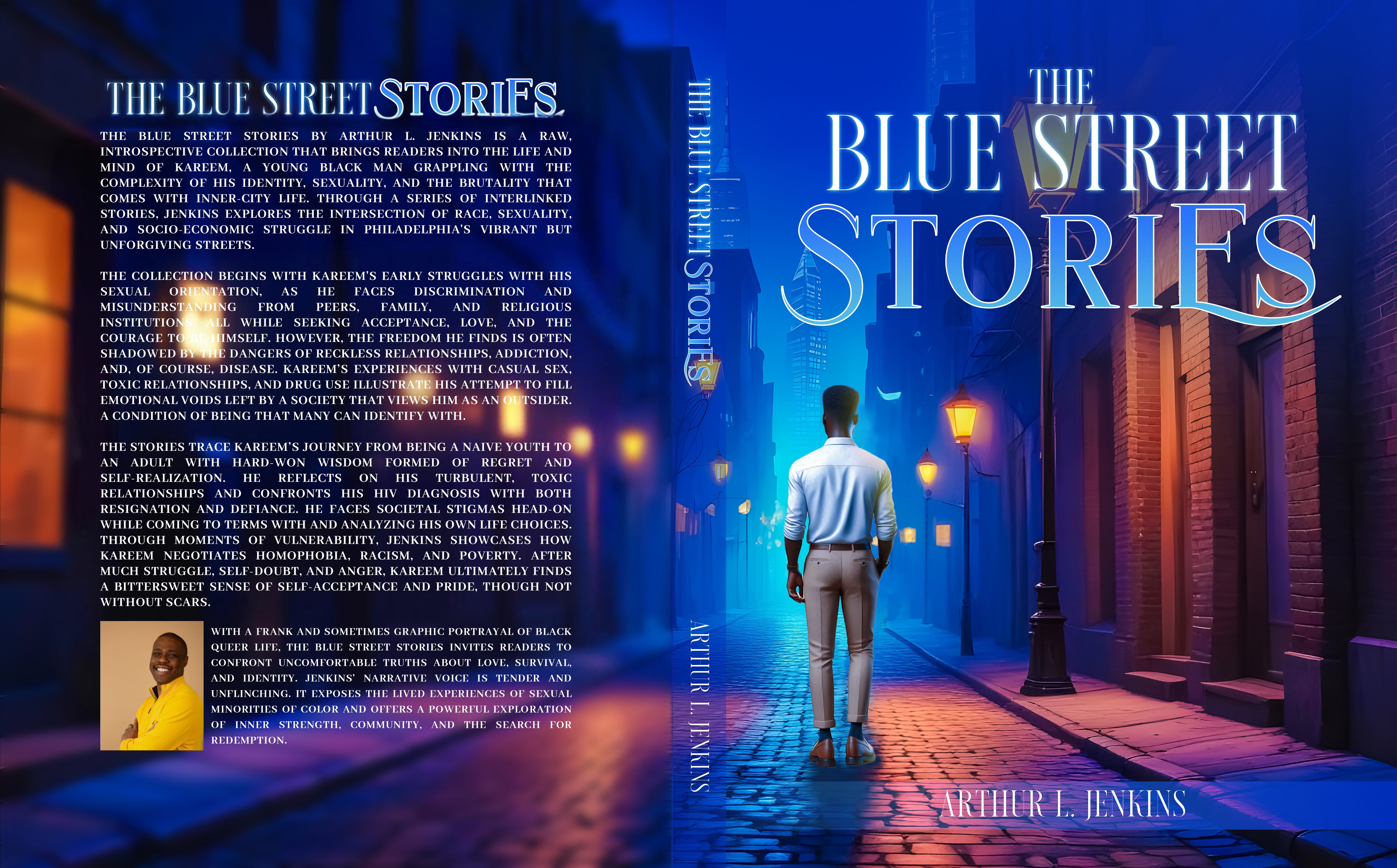In a typical, traditional society, everyone has to follow the protocols to fit in the neat boxes. Have you ever felt like your story is different from the others? If so, you’re not alone. You are heard. For many in the LGBTQ+ community, finding a voice can be a struggle. But what if literature could be the way to convey the message of these often-unheard ones?
In the world of books, the pen is mightier than the sword. Literature has the power to do more than just tell a story. It can open the doors to new perspectives. In “The Blue Street Stories” by Arthur L. Jenkins, we see this power at work, as he writes stories that relate the unique experiences of LGBTQ+ individuals, particularly within marginalized communities. But why does this matter? Are you ready to find out? Let’s go!
The Power of Representation
Representation isn’t just about seeing yourself in a story – it is about feeling seen and understood. For many LGBTQ+ individuals, the media often fails to portray the complexity of their experiences because of stereotypical mindsets.
However, when authors like Arthur L. Jenkins hold the pen, the story takes a huge shift. His work gives voice to the unheard, real-life struggles of LGBTQ+ people. The people who often struggle between identity and faith. In “The Blue Street Stories,” characters are more than just their gender identity. They are complete individuals, juggling between love, loss, faith, and self-discovery.
Breaking Down Stereotypes
Stereotypes are like the bad plots in a novel – predictable, boring, and often harmful. But good literature? It flips the story! LGBTQ+ stories help us see that there’s no one right way to be who you are. In this book, the characters are unique, with their strengths and flaws.
The story isn’t just about being gay – it is about how being gay becomes a struggle with every other aspect of life – from religion to relationships, and everything in between.
Stepping into Other’s Shoes
One of the most powerful aspects of literature is its ability to create empathy. By stepping into the shoes of a character, readers are invited to see the world from a different perspective. This is especially important in LGBTQ+ novels, where the experiences of the characters may be completely different from those of the reader.
In “The Blue Street Stories,” readers are taken on a journey through the eyes of characters who are juggling between the complexities of life – identity, love, and societal rejection. These stories aren’t sugar-coated; they’re real, and at times, heartbreaking. But it is through this honesty that readers relate so deeply that can bridge even the widest of gaps.
How LGBTQ+ Stories Impact Society
When LGBTQ+ stories are more prominent and visible, they do more than just storytelling – they change the plot. This literature not only impact those within the community but also the broader societal conversation.
By normalizing diverse identities and experiences, these stories help to break down barriers of ignorance and partiality, making the way for a more accepting society. It is a reminder that literature isn’t just about entertainment – it is about making a difference.
The Blue Street Stories
“The Blue Street Stories” by Arthur L. Jenkins is a journey into a world where identity, faith, and personal struggle come together, offering you a chance to see life from a whole new perspective. The book contains stories about the complexities of living as a gay man. It is a deep exploration of how factors like sexuality and race can lead to internal and external conflicts and how they shape the lives of the characters involved.
Conclusion
In a world where most of our lives are left unheard, literature plays its role. Through this story, Arthur L. Jenkins has not only given a voice to the LGBTQ+ community but also challenged readers to listen, learn, and empathize. As we continue to turn the page on silence, let’s remember that every story told is a step closer to a world where everyone’s voice matters and everyone feels heard.
